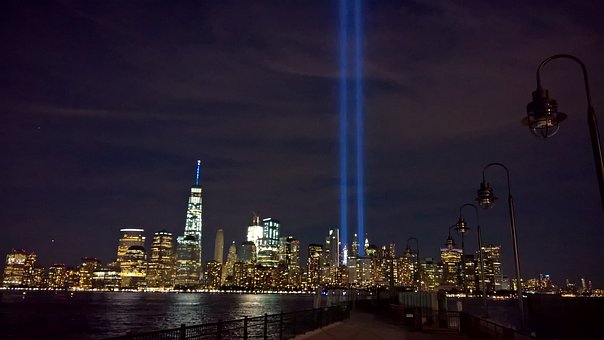Compensation is now available for 9/11-related injuries through the World Trade Center Victim’s Compensation Fund.
The September 11th attacks were one of the greatest national tragedies ever suffered by the United States of America. The violent acts of terrorism perpetrated on U.S. soil that day were so brazen and destructive that they gave rise to an enduring mantra, “never forget”. For the first responders, workers, and residents who were in close proximity to the World Trade Center on 9/11, the lasting effects that the towers’ collapse have had on their health makes it even harder to forget.
The toxic particles, dust, and building materials that flooded the air of lower Manhattan on 9/11, and lingered long afterward, have caused thousands of people to develop cancer, lung disease, and a host of other illnesses. Fortunately, Congress has established a Victim’s Compensation Fund (VCF) to provide victims of 9/11 with the help they need. Read on to learn about whether you are eligible for compensation through the VCF and, if so, how to get it.
What is the Victim’s Compensation Fund?
The original 9/11 VCF was established by Congress in 2001, immediately after the attacks occurred. The purpose of this first VCF was to provide compensation to individuals and the families of individuals who were injured or killed as a direct result of the attacks on 9/11. Because it was meant to compensate for immediate injury or death sustained as a result of the attacks, the first VCF was only left open until December 23, 2003.
However, in the years after the VCF was closed, it became clear that many first responders and civilians who were in lower Manhattan on the day of the attacks, and for weeks afterward, had been exposed to a cocktail of harmful toxins and were developing a variety of illnesses – 9/11 was continuing to cause damage and claim lives. In response, Congress enacted the James Zadroga 9/11 Health and Compensation Act of 2010 (Zadroga Act), which reopened the VCF.
The Zadroga Act was reauthorized in 2015, extending health benefits for 75 years and giving victims until December 18, 2020 to file a claim. The VCF was allotted $7.3 billion to compensate those injured by the 9/11 attacks, with over $4 billion in claims already paid out. Below, we describe in detail who is eligible for compensation from the VCF under the Zadroga Act.
Are You Eligible for Compensation from the Victim’s Compensation Fund?
The list of eligible claimants under the Zadroga Act is broad, including first responders, construction or utility workers, rescuers, and recovery or clean-up volunteers/workers who were present in lower Manhattan south of Canal Street any time from September 11, 2001 until May 30, 2002, as well as anyone who lived, worked, or attended school in the same area during the same timeframe. If you fall into any of the above categories and have an injury, you may file a claim with the VCF.
It is important to keep in mind that, under the Zadroga Act, the VCF only compensates for certain injuries and illnesses that are linked to the 9/11 attacks and the toxic cloud released as a result of the attacks. This includes 68 different WTC-related cancers, asthma, chronic obstructive pulmonary disease, mesothelioma, asbestosis, chronic rhinosinusitis, gastroesophageal reflux disorder, interstitial lung disease, and reactive airways dysfunction syndrome.
If you are unsure whether your injury constitutes a valid VCF claim under the Zadroga Act, it is vitally important that you speak with an attorney who has experience fighting for the rights of 9/11 victims as soon as possible. The deadline for filing a VCF claim is two years from the date that the WTC Health Program, or another governmental agency, certified your cancer or illness as WTC-related. In practice, the two-year timer usually begins to tick from the moment that you were made aware of the fact that your illness was WTC-related. In the case of 9/11 victims who have already died from WTC-linked diseases, the deadline for their families to file a claim is 2 years from the date of death.
How to File a Victim’s Compensation Fund Claim
Filing a VCF claim requires filling out a substantial number of forms, compiling all required documentation related to your injury or illness, and then sending all of your paperwork to the appropriate government agencies or authorities. Because of the complexity and time sensitivity of this process, it is strongly encouraged to retain the help of an experienced attorney, rather than trying to go it alone. Because they have helped many people in your position successfully obtain compensation from the VCF, your attorney will be able to guarantee that all of the necessary documents are submitted to the right places in time to ensure that you get the maximum amount of compensation that you deserve.
The information you obtain at this site is not, nor is it intended to be, legal advice. You should consult an attorney for advice regarding your individual situation. We invite you to contact us and welcome your calls, letters and electronic mail. Contacting us does not create an attorney-client relationship. Please do not send any confidential information to us until such time as an attorney-client relationship has been established.

